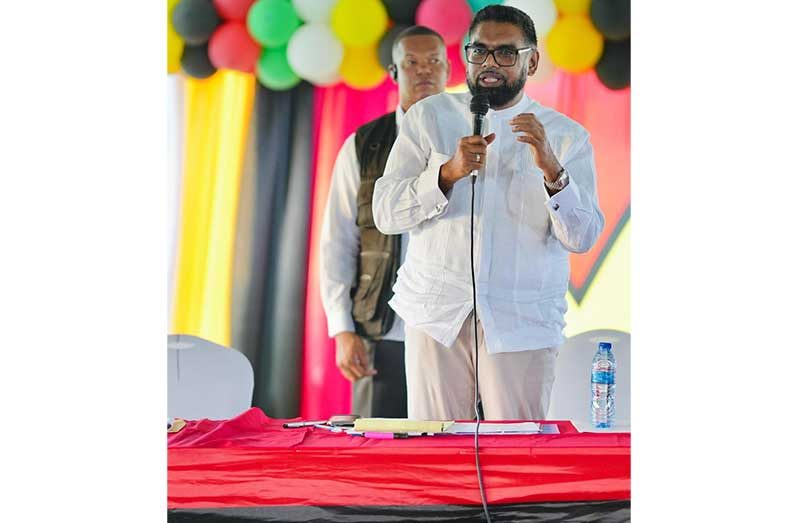IN a transformative move aimed at empowering underserved youth, President Dr. Mohamed Irfaan Ali has announced the establishment of a model Electronic Learning (E-Learning) Centre in the community of Goed Fortuin.
The initiative is set to provide remedial education and a second chance for school dropouts to complete their CXC examinations and access job opportunities.
The announcement came during a community engagement on the West Bank of Demerara, where the President, speaking directly to residents, spontaneously identified a nearby building with the potential to become a hub of learning and development.
“We are going to rehabilitate that building there and we’re going to make it an e-learning centre to do a few things,” President Ali stated, pointing out the facility during his address.
The planned centre will house a fully equipped electronic learning system specifically designed to support the CXC curriculum. It will also provide internet access and computers to facilitate studying and self-paced learning.
Crucially, the initiative targets young people—particularly those who have dropped out of school—who wish to re-engage with education. President Ali said the programme would start by identifying four CXC subjects for learners to focus on, helping them to graduate and move on to vocational or professional training, such as nursing programmes. Participants in these programmes would receive a stipend and be guaranteed employment upon successful completion.
“In that building, we’re going to do remedial education, we’re going to put all the curriculum on, we’re going to put some internet and computers for studying,” Dr. Ali explained. “Importantly, we want to identify young women or young boys who would have dropped out of school, who want a second shot—we’re going to train them.”
The Goed Fortuin facility is being envisioned as a model for replication across the country, with participants agreeing to pursue further training or employment-linked programmes after completing their studies.
The President noted that once the building is rehabilitated and retrofitted, the pilot programme will begin with 30 young people from the community, with plans for future expansion based on its success.
This initiative forms part of the government’s broader agenda to uplift vulnerable groups through education, digital inclusion, and job creation—delivering on promises of inclusive and equitable development for all Guyanese.



.jpg)









